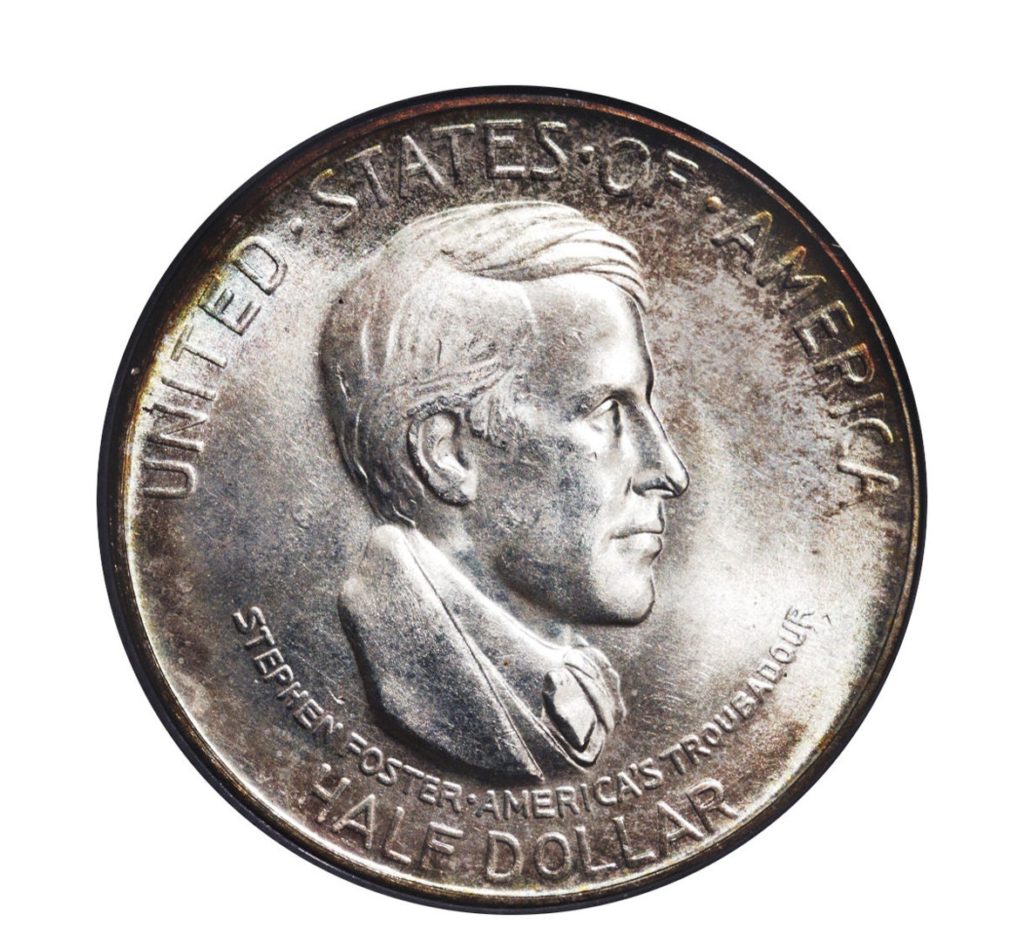By Jim O’Neal
The life of Stephen Foster had an auspiciously American beginning. Like the great stage patriot George M. Cohan, Foster was born on the Fourth of July (Cohan’s birth certificate actually shows a date of July 3). But in the case of Foster, it was no ordinary Fourth. It was July 4, 1826, to be exact, which marked the passing of two great Americans: John Adams and Thomas Jefferson, both having served as vice president and president of the United States. Foster came into this world as they were leaving it.
It was also a memorable date in American history, marking the 50th anniversary of the Declaration of Independence, a time when America was still emerging from its colonial past and establishing its own distinctive culture.
Stephen Foster (1826-1864), like most children in his social class, spent many afternoons playing and singing at the piano. But Foster was more interested in music he heard outside the home: the growing popularity of the “minstrels.” These were white-men-in-black-face performances of the 1830s and 1840s, which dominated the theaters. At once racist and patriotic, these shows permitted Americans (specifically whites) to join in expressing their superiority to the black man, an unfortunate “unifying event” in a nation of immigrants.
However, for the young Foster, who often returned home from the theater and put on minstrel shows of his own for friends, there was much more. There was something fascinating about the black music and lyrics he heard, even as they were twisted for derogatory effects. He developed a sympathy that he carried forward years later when, as a bookkeeper in Cincinnati, he decided to become a professional songwriter. And what an astounding, prolific artist he became!
From his office window on the docks of the Ohio River, Foster marveled at the music of immigrants from Germany, Italy and Scotland … and especially from the blacks who had come to Cincinnati to work on the docks. Now Foster could hear real African-American music, not just the caricatures of the minstrel men, and it captivated him. Locked in complete silence in his study, Foster carefully incorporated the diverse melodies he’d absorbed from the many varieties he heard. First working through them note by note on the flute, then playing them full-out on the piano until they became the raw material for his own music.
In the end, Foster’s lasting appeal was his ability to draw on this reserve from which he created a uniquely American sound. Borrowing from elements of Irish songs, Italian opera, minstrel music and black spirituals, he created simple melodies that spoke to human needs of family and heartbreaks.
The results were staggering.
His first minstrel song in 1846, “Oh, Susanna,” was a smash hit. Arriving at a time when national pride was beginning and new technologies were uniting people across the nation, it caught on like no song before it. The previous most popular piece of sheet music had sold 5,000 copies. “Susanna” would sell over 100,000 and instantly become part of our cultural heritage. California miners hummed it while they dug for gold. Black rowers sang it in the East and South. It was easily the most sung song in America.
After this success, Foster became serious about making a living in music and publishers billed him as the “Songwriter of America.” In 1850, he wrote 16 songs. In 1851, 16 more. Then would come a flood of hits that are too numerous to list. He toned down the dialect, dropped the term “minstrel” and blended the black experiences into metaphors for all manner of American yearnings, especially the one for “home.”
The Father of American music churned out over 200 classics. Then it all came to a sudden halt when he died from a mysterious fall. Stephen Collins Foster was a mere 37 years old when his genius stopped. Yet on the first Saturday of May each year since 1875 (uninterrupted), people gather at Churchill Downs in Louisville to witness “the most exciting two minutes in sports” … the Kentucky Derby. Among the many traditions of mint juleps, burgoo and women’s accessorized hats, the University of Louisville marching band will play his “My Old Kentucky Home.”
Not bad for a shy lad born on the 50th anniversary of our defiant Declaration, which we still rely on today.
 Intelligent Collector blogger JIM O’NEAL is an avid collector and history buff. He is president and CEO of Frito-Lay International [retired] and earlier served as chair and CEO of PepsiCo Restaurants International [KFC Pizza Hut and Taco Bell].
Intelligent Collector blogger JIM O’NEAL is an avid collector and history buff. He is president and CEO of Frito-Lay International [retired] and earlier served as chair and CEO of PepsiCo Restaurants International [KFC Pizza Hut and Taco Bell].

